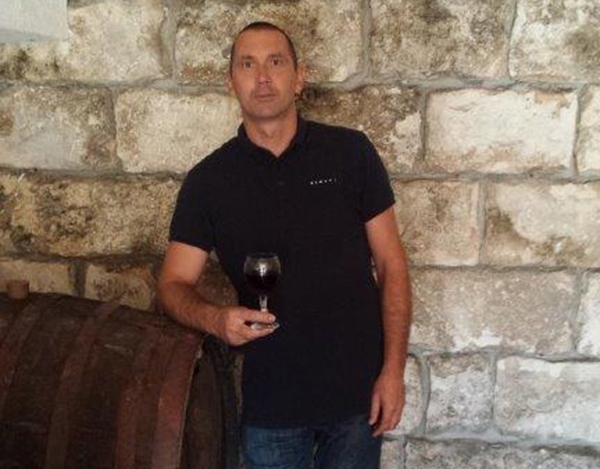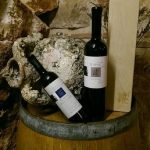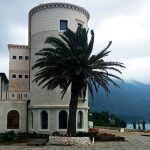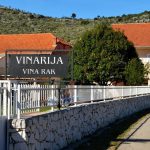
“I do everything the way I learned from my father, there are no enzymes, yeasts and thus no need for an oenologist.”
The founders of the American company Indie Wineries brought to the market wines that would probably never leave their country of origin, or would remain unknown beyond their local area.
Mario Andrović from Ponikve on Pelješac peninsula in the south of Dalmatia can boast his export business to the United States comes thanks to the wine lovers from Indie Wineries, who recognised in him “something different” which makes his Plavac Mali worthy of being in their American wine shops. Thus Mario, whose wines are unknown even in neighbouring towns, can say he is one of only three Croatian winemakers (with Ivan Kosovec and Denis Bogoević) who are part of the “world network of artisan wineries” gathered in Indie Wineries. Mario says everything began with his first bottled wine, a superior Plavac Mali from 2009, which a representative of Indie Wineries for Croatia and Slovenia, Jay Wisniewski, discovered and tasted in the Mirakul restaurant in Slano, the only restaurant that serves it.
“My first export to the US was in 2012,” said Mario whose total production does not exceed 6-7.000 bottles of Plavac Mali he makes in to “lines.”
“Jay Wisniewski spends every summer with his wife Christine in Slano, where they have a house. Obviously the wine intrigues them. Restaurant owners, my friends, gave them my contacts and they quickly came to Ponikve. They came several times, toured, we talked, they were most interested in vines and grape processing. After some electronic correspondence came the first official invite to export to the US,” described Mario.
According to him, Indie Wineries owners, who distribute mostly ecological and organic wines, were additionally interested in his “old-style processing,” which is the reason why he never thought about hiring an oenologist.
“They liked it the first time they visited the winery. I do everything the way I learned from my father, there are no enzymes, yeasts and thus no need for an oenologist. Jay and Christine wondered how can I even make a Plavac Mali with natural yeasts. My production is quite small and I know it’s hard to survive in the wine arena with so little wine. However, I decided to remain true to tradition and what I inherited and there is no price for which I would change this approach to introduce novelties in producing wine. Luckily, there are more and more wine lovers in the world which accept such, maybe extreme, approach, but for the fifth year now there is a group that recognises this and they are the answer to my existence on the market. It’s a tough fight, but – it pays to be consistent!”
Mario says he had an “offer from Zagreb” to buyout the entire wine production, but with a condition “that wines each year be of same quality.”
“Such a condition can be met only if using a large amount of artificial oenological means. I work the natural way and, although there are no major oscillations, my wine is different every time. People like that and this is why we persist. That’s what the market says!”
Compare to other Plavac Mali wines from Pelješac, Mario says his wines are “different by content, taste and density, especially in aroma.”
“At least this is the feeling I get, but I think other wine lovers see this too. Most wines today are made into the same mould. For example, I don’t use stainless steel or barrique barrels, only old ones. For me an important role plays an oak barrel from 1956 in which the wine ferments and ripens.”
His vineyards, which he began to work on seriously aged 15, when his father became ill, having to bear the load of harvesting and selling the grapes, are in three positions. Before the war his family had orchards of mandarins and peaches, but later it all came down to 15.000 vines and some olives for their own use.
Somehow at the same time when he began to produce wine more seriously, at a time when the cooperative winery they sold grapes to wasn’t fulfilling their duties to partners, Mario had to find a secure source of income to help his sons in college and high school. He found work as an ambulance driver and is one still today.
“I had to get through the period when I tried to sell my wines, not easy for someone who just started production. I have two children, the costs kept rising and that made me get a job. People ask me how I balance such different activities. The answer is simple – when my ambulance job ends, the work in the vineyard relaxes me. In the ambulance one can never tell what will happen, while the vineyard makes me relaxed, peaceful and safe.”
Although the golden jackal silhouette on the labels of his wines suggest he may have hunting afflictions, Mario says that the jackal is the family nickname.
“And this jackal, present on Pelješac, turned out to be a fitting story for the label, as it combines Pelješac, Andrović family and Plavac Mali, as the animal can often be seen in the vineyards. And I have plenty of friends who hunt, we enjoy their catch in wintertime with roasted wild boar – they hunt and I roast and provide the wine!”
Mario’s wife and children are active members of the local folklore society, while he feels an associate member, especially when they travel and he drives. He says he tried dancing a long time ago, but soon found it wasn’t his cup of tea.
Mario also rent the only apartment in Ponikve, although before the war several families were in tourism in the village, three kilometres away from Prapratno bay and its wonderful beach.
“Tourism works well, people like the peace they find here, no crowds or commotion.”
To summarise a year of living on Pelješac, Mario says in winter they spend time with food and dancing, in summer motorcycles, tourism and swimming, with the only constant being – wine!
“Wine is in everyone’s blood here! Probably due to this passion they became competition to Potomje in claiming the wine capital of Pelješac title. Ponikve has been lately, following in the path set by Frano Miloš, recognised more as an unavoidable point on the wine chart of Pelješac. The quality of wine was never in question here. My great grandfather knew this, whose physical qualities earned him the name Steel Pavo and who had no problem with spending an entire lifetime in the vineyard. All I had to do was stay true to his dream.”
For the original and more from Vinske Priče blog on wine, click here.










